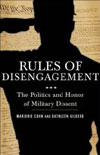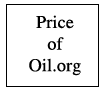"Dream Team" Plans a Crude Awakening
Dateline:Thursday, May 25, 2006
By Phil Guie
Last week, Greenpoint residents got answers about the oil that has been gathering underneath their homes for the past 30 years.
The plume of crude, estimated at 55 acres and between 17 and 30 million gallons, has stemmed from leaks at an ExxonMobil refinery adjacent to Newtown Creek. In recent years, several lawsuits have been filed - one against ExxonMobil specifically, the other against several oil firms - demanding a clean-up as well as financial restitution.
Although the spill was first sighted by a Coast Guard helicopter in 1978, an independent study has never been commissioned to determine its exact size. Nor has the extent of the contamination to the area near the spillage been fully realized. Because of that lack of information, a little over two weeks ago State Comptroller Alan Hevesi asked the New York State Department of Environmental Conservation (DEC) to stop negotiating a new order of consent with ExxonMobil until such tests are performed.
That update and more was addressed at Wednesday's meeting at the St. Stanislaus Kostka School on Newell Street. Shawn McCann, an associate at Girardi & Keese - which is representing some Greenpoint residents in one suit - said that the amount of loose product from the refinery could equal two to three times as how much oil was spilled in the Exxon Valdez disaster. He also said that the environmental consulting firm Roux Associates, which was hired by ExxonMobil to perform tests, had been added to the lawsuit as a defendant.
"Delta [Environmental Consultants, Inc.] looked over the results and said it looked like Roux wasn't trying to find oil, it looked like Roux was looking to avoid finding oil," McCann said.
As for the independent tests proposed by Hevesi, they would check the location and size of the spill, as well as test surrounding vapors to determine their effect on residents. McCann said that it perplexed him why DEC, which is entrusted with safeguarding the local environment, would rely solely on results paid for by an oil company.
"Everyone wants answers," he said. "I myself cannot figure out why DEC would not go forward with independent tests to find out the answers everyone is looking for."
After lobbing that opening salvo at ExxonMobil, Roux Associates, and the state, McCann stepped aside to let local politicians rally the crowd. Evelyn Cruz, representing Congresswoman Nydia Velasquez' office, spoke about the importance of protecting both aquatic and human life, and making firms such as ExxonMobil accountable for the results of their actions. "It is daunting and scary when corporations hire other corporations to do the work that they are supposed to be doing," she said.
Just about every public servant who addressed the audience thanked them for a terrific turnout. Assemblyman Joseph Lentol, however, said that showing this time would not be enough to see the fight through.
"We have an opportunity here with the lawyers present to really put pressure on state legislators, and we have to continue to put pressure on them or they will go way and forget us like they always do," he said. "Your role as plaintiffs is the key. You have to keep pressure on me, you have to keep pressure on Congresswoman Velasquez, to make sure we do our job and that we do it as best as we possibly can."
Lentol added that he was happy to hear about lawsuits that would pay money for damages, but said it was more important that oil companies clean up their mess properly. "We don't know which of us lives in the plume or not, but we don't want this to continue 15 more years," he said. "We don't want this to continue five more years. We want the clean-up to be done now, and as humanely as possible."
Following the politicans' remarks, it was time for those at the front lines of the fight to speak. McCann introduced Chief Investigator Basil Seggos of the non-profit environmental group Riverkeeper, who received a loud and extended ovation from the crowd. Seggos, however, sounded as if he would rather have been visiting Greenpoint under different circumstances.
"We really shouldn't be here tonight," he told the 80-plus audience members. "We really shouldn't be here talking about this. It's been 30 years since we knew about this problem, so why are we here now? Because the oil companies have treated this community like a giant storage tank, and the government has been asleep at the switch at best."
Seggos talked about the lawsuit as a multi-year process, which had started in 2002 when Riverkeeper realized it had a large spill on its hands. "We knew that it was just the tip of the iceberg," he said. "So after a year of investigational probing, and [perusing] the massive documents in the government's possession, we learned quite a bit about the spill that was quite shocking."
Indeed, less than a month ago, the environmental organization discovered court papers originally released by the Department of Environmental Protection which stated that ExxonMobil executives knew for ten years that potentially toxic gases had escaped from the oil spill. Riverkeeper filed a federal lawsuit in 2004 on behalf of the environment to have the oil plume cleaned up. Seggos said that the main concerns of his organization, and the lawyers at Girardi & Keese, now pertain to the amount of damage done to Newtown Creek, and how much product currently sits underneath people's homes. "We don't actually know how big [the plume] is," he said.
He added that vapors and the groundwater beyond the delineation of the plume have to be considered as well, since the delineation itself is just product, and does not measure the full extent of contamination.
The next few speakers addressed different aspects of the current predicament with contrasting attitudes. Stanley Alpert, a former district attorney as well as chief of Environmental Litigation, sounded confident in the roster of lawyers assembled to take on ExxonMobil. He referred to Tom Girardi of Girardi & Keese as one of the country's most powerful trial attorneys, and said their group also featured a strong local presence in litigators such as Justin Bloom, Jeff Caufield of Caufield & James LLP, and the community's own Adam Pearlmutter.
But Alpert, who runs his own New York-based firm, said they also had a secret weapon, someone who spent the last ten years litigating cases against ExxonMobil: Stanley Alpert himself.
"We're gonna fight very hard for individual rights," he promised the audience. "There's been a lot of talk about what the government and DEC are gonna do. But in addition to that, those who own homes and have been contaminated all this time need to have their rights represented properly."
Pearlmutter, who has lived in Greenpoint for more than a decade, referred to the group as "an environmental Dream Team" - due to each member's experience fighting for ecological causes. For their 6th man off the bench, however, he looked no further than his neighbors in the audience. "When we fight together, we are a mighty, mighty force," he said. "We have taken on Con Ed, Keyspan, Transgas. We're gonna take on Exxon and we're gonna win again."
But in contrast to his associates, Robert Bowcock of Integrated Resource Management, LLC (IRM) offered sobering data explaining how the crisis came about, and how bad the situation has gotten. He explained that before 1978, Greenpoint had a well that it drew from for its drinking water. When the contaminants from the oil spill reached the well, the city turned it off, which caused the pollutants to leak into Newtown Creek.
Standing before a projected delineation of the oil plume, Bowcock said there could be a "smear," or contaminants that run in a semi-circle, flowing down into Newtown Creek. He said that the delineated area would experience the effects of the free product; however, he also cautioned that the area outside the lines could be contaminated worse. The reason: Contaminated liquid sitting adjacent to the plume.
"There is water, no longer being used for drinking, underneath the oil," Bowcock said. "For every gallon of oil we see in Newtown Creek, there are thousands of gallons of water underneath with not less than 50 known contaminants. [And] for those thousands of gallons of contaminated water seeping into Newtown Creek, some kind of contamination is taking place on top of the oil through hazardous vapors."
The audience seemed to know exactly what Bowcock meant when he referred to a bad stench emanating from the creek. In fact, they seemed more surprised when he said that ExxonMobil argued the contrary. "In February of 2006, one month after the DEC meeting, Exxon published a report that read: 'While we don't understand why we are doing soil vapor testing, we will comply. But there has never been any report of soil vapor smells in Greenpoint.'" That provoked laughter throughout the room.
Meanwhile, their expert was dead serious that wrongs had been committed against the community. "For 30 years, ExxonMobil has made a management decision, rather than clean up the oil, to store it under your homes with no concern about the damage it has caused," he said. Although the oil giant has a process by which they "remediate" - that is, collect the oil from the soil, and lately re-refine it and sell it - Bowcock argued that their technology was outdated back in 1978. "Since 1990, they have been extracting oil and selling it in as menial a rate as possible, from a very limited area," he said.
After that wealth of information was shared, McCann returned and led attendees through a question-and-answer period. Someone asked what the main defendant was doing right now with respect to the case. The Girardi & Keese lawyer said that ExxonMobil was adhering to the status quo. "So far, in all the media, they're denying any and all health effects, saying that they're doing everything they can to clean up the oil spill, and have yet to take any responsibility for causing the spill," he said.
Many of the inquiries from residents had to do with potential health problems stemming from the contaminants discussed. McCann said that he could not answer anything on that topic for certain, since there had never been independent testing to determine how much oil exists in a given spot, which would affect the answer. He did point out, however, that Benzine, a known carcinogen, had been identified as a contaminant. The highly flammable methane had also been found. "Right now, there's not enough information to give you a full, complete, and right answer," McCann said. "We don't want to give you false information."
Then somebody asked him if he would raise a family in Greenpoint, knowing what he knows. After some pressing, McCann admitted that he would not. "I'll be honest," he said. "I would not buy a house in Greenpoint."
Pearlmutter, however, intervened and closed the meeting on a note of solidarity. "Many families have been living here for over a century," he said. "It's where we're from. The question shouldn't be whether we should be living in Greenpoint, it's what can be done to clean this up as quickly as possible. We don't know the full effects. We don't want to set off a general panic, that's not what we want to do here. Yes, I'm raising my family in Greenpoint. But like you, I have concerns and I'm trying to get to the bottom of them."





